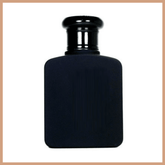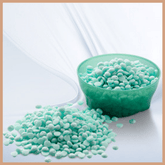Starting a Soap Business? Here are 10 Things You Need to Consider BEFORE You Launch!
Is it time to turn your soap making hobby into a business? If you've been considering selling your homemade soaps, our guide today will assist you through some of the most important aspects of starting a soap business. Whilst it can seem a bit scary or overwhelming to start, we're here to help you get your soap business off the ground and start selling successfully.

Let's face it, soap making is a very addictive hobby! If your home is overrun with your homemade soaps, your family and friends have enough soap to last them a lifetime, you may be thinking of a way that you can recoup some of the money you have spent on creating your masterpieces! If that's the case, then it may be time to think about starting a soap business!
Before you can even start thinking about launching your soap making business, there are a few things you’ll need to think about and prepare as well as things that you’ll need in place. After all, rushing in to launch any business before being completely ready can be a very costly mistake.
So here are 10 helpful pieces of advice to turn your soap making hobby into a profitable business.
Step 1 - RESEARCH RESEARCH RESEARCH!

Primarily, the most important piece of advice we can offer anyone looking into starting their own soap business, is to do your research! The good thing is you have found this post so it shows you are already on the right track.
Researching may seem to some to be a very time-consuming task, but we promise you, it will save you so much time in the future. It will help minimise costly mistakes, make sure you have the knowledge to be able to legally sell your products and the most important thing is to help you build a profitable business.
Step 2 - Is your product retail ready?

Have you spent enough time perfecting your recipe/formula? Are you 100% happy with your product?
When running a business where you are manufacturing your own products, one rookie mistake is to rush into selling a product that will end up needing tweaking in the future. Imagine spending all that time and money producing a product and its packaging to just end up changing it all 6 months down the line. Remember, practice makes perfect!
Step 3 - Have you decided on your target market?
A target market is a particular group of people whom you will market and sell to.
Researching your market area and deciding on your target market is a must. Keep an eye on your competition and see what products seem to be the most popular. Trying to sell brightly patterned soap to an older customer base who prefer a more natural rustic looking soap will cause you problems from the start.
Think about the age group and gender of your target market and also consider customer budgets. You may choose to concentrate on a high-end luxury line or even a budget-friendly range.
Look for any gaps in the market. For example, many cosmetic businesses who make brightly coloured fun bath products do not tend to cater for the people who have fragrance sensitivities – so look out for unexplored niches that may not have had attention in the past.
One thing to remember though, YOU are not always your own target market. Do not just consider the products you like as we all have our own preferences but think instead what your target market might like.
Step 4 - Do you have a unique selling point?
What makes your product stand out from the rest? Having a great USP is a great start for any business. Consider what it is that makes your soaps better than your competitors. Are you using all natural ingredients? Aiming for an all-natural, vegan customer base? Look for ways to offer something different and whilst it’s fine to take inspiration from others, never copy but make it original to you and your brand.
As mentioned above, finding your niche or targeting that gap in the market will be your USP and make people more likely to purchase from you rather than your competition.
Step 5 - Are the ingredients used in your recipe cost effective?

If you use expensive oils to make high end luxury products, will you then have the budget to be able to package and market your product to a high-end customer base and still make a profit?
If not, it may be worth looking into different suppliers or even cheaper alternative oils and ingredients so that you can keep the making costs lower, open up your customer base and help keep your profit margins healthy.
Bear in mind that using cheaper ingredients does not mean you are producing an inferior, lower grade product. It’s important to find a supplier who is able to offer all ingredients in one place to save you time and money. This is why Craftovator® prides itself in being one of the UKs largest suppliers for your soap making needs.
Step 6 - Legal obligations for selling cosmetic products
Once you have perfected the product, you will then need to think about safety assessments for your soaps.
Handmade soap is classed as a cosmetic product as its intended use is to be used on the skin. To legally sell any cosmetic product, you will need to have a safety assessment/report written by a cosmetic chemist and you will also need to submit a new product notification to the OPSS (Office for product safety and standards) for each variation of soap you make.
This in itself can seem very daunting but our guide here will tell you how you can fulfil all legal obligations when it comes to selling your handmade cosmetic products. This again is another fine reason why we have explained above how important it is to perfect your recipe.
Remember, a safety report will list all ingredients in your product so if you need to tweak any recipe, you would then need to have your safety reports re-written which can prove to be a very costly endeavour.
Step 7 – Start Small

You may have all these brilliant ideas of multiple products that you would like to launch your soap business with but just remember Rome wasn’t built in a day!
Start with a small product line, a little bit of something that will appeal to different customers so you can test the waters and see what sells the best. You can always gradually add to the product range. Start with small amounts, make small batches, because if you then find a particular product or fragrance line doesn’t sell very well, you will not be left with a ton of dead stock.
It's expensive to start a small business, so the last thing you want to do is immediately rush in with bulk buying ingredients and making lots and lots of products. Test the waters first with just a small line of products and concentrate on putting your time and money into your brand with advertising, marketing and finding your customer base.
Step 8 - Branding and packaging

Your goal from the start should be to get your brand known and seen. Your brand will represent your company, your products and you. Branding is so important as it will allow you to stand out from your competitors.
Remember branding goes beyond just your logo! Think about everything your customers come into contact with from your labels, your packaging to your website and social media. If you’re selling at markets or fairs, your packaging is the first thing your customers will have contact with. It again must fit in with your target market.
Ensuring your branding fits with your target market will emphasise what it is that makes you different. You would not want to be packaging your soaps in plastic wrap if your target market customers are looking for eco-friendly, all-natural products. If you’re selling to a luxury market, make sure your brand exudes quality and craftsmanship.
Consider creating a mood board (Pinterest or Canva is a great way to do this) to set out the look and feel of your brand and what values are most important to you. This will help solidify the direction your brand will take and guide you in creating your labels, packaging, website and social media feed.
Step 9 - Business planning

To help you turn your hobby into a business you will need a business plan. A business plan will help you define the goals you want to achieve and how you will achieve them.
Look at it as a road map to help you reach your journey’s end as a successful, profitable business. The finished plan will also serve as a reminder to you of these goals. It can be a valuable tool which you can refer to as time goes on, helping you stay focused and on track.
You can include things like:
- Financial summary: How much your budget costs will be to start up? Where will your budget be spent? What are your sales goals for the near future and long term? What will your costs be per product? How much revenue do you want to earn? How much do you need to charge and how many products do you need to sell to get there?
- Target market: Who are you targeting? Who are your ideal customers?
- Marketing plan: Which platforms you will use to reach your target audience?
- Your vision: Where would you like to be in say 2 years’ time? 5 years? What actionable steps need to be taken to get there?
- Market analysis: Who are your competitors? What can you learn from them? What products sell best for them?
- Timelines: At what point would you like to introduce a wider range of products? What is your goal when It comes to growth of your business?
Step 10 - Where will I find my customers?
How will you reach your target market? Well, there are many ways in which you can reach new customers. Social media has made this a lot easier for small businesses due to the many media platforms available now.
Social networking is necessary for small businesses as it helps get your products get seen and your brand recognised outside of your social circle. Creating content for your social media will help get and keep your customers engaged. You may wish to record videos of yourself making your products (but not giving away your top making secrets!) or spend a little money on decent photography equipment to help with this.
Here are a few media outlets you may want to think about using
- TikTok
- YouTube
Can you meet your customers face to face? Face to face marketing can provide valuable insights into what your target market is looking for in a product. It will also help enhance your brand by building trust directly with your customers. Here are a few ways in which you can get out there to personally sell your products
- Events such as Christmas fairs and school fêtes
- Home parties
- Craft fairs
- Markets
You may also be able to find a bricks and mortar shop where you will be able to rent a shelf or you may wish to sell wholesale.
Lastly, online retail such as your own website can be a powerful tool for selling but you will need to consider additional costs involved and SEO to drive customers to your website. There are also e-commerce websites like Etsy, eBay, Amazon or Not on the High Street and wholesale platforms like Faire or Ankorstore to consider. With any of these platforms, you’ll want to make sure you account for any additional costs.
We hope you’ve found this helpful when considering starting your own homemade soap business. We carry a wide selection of soap making products to get your business started and offer discounts on bulk buying too.
Be sure to check out our guide on Assessments and CSPR – What You Need to Sell Bath & Body Products in the UK before you being selling to ensure you’ve met your legal obligations too.








3 Comments
Good afternoon
I have come across the idea of having a soap business and have a rough idea on what I would like. However I am unaware on how to start a new business and I am happy to do a small soap business which I would like to do along with my 9am to 5pm job.
I am also interested in learning new things on how to setup a business and would like to hear from you
Kind regards
Zarif
Leave a comment
All blog comments are checked prior to publishing